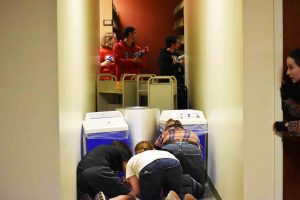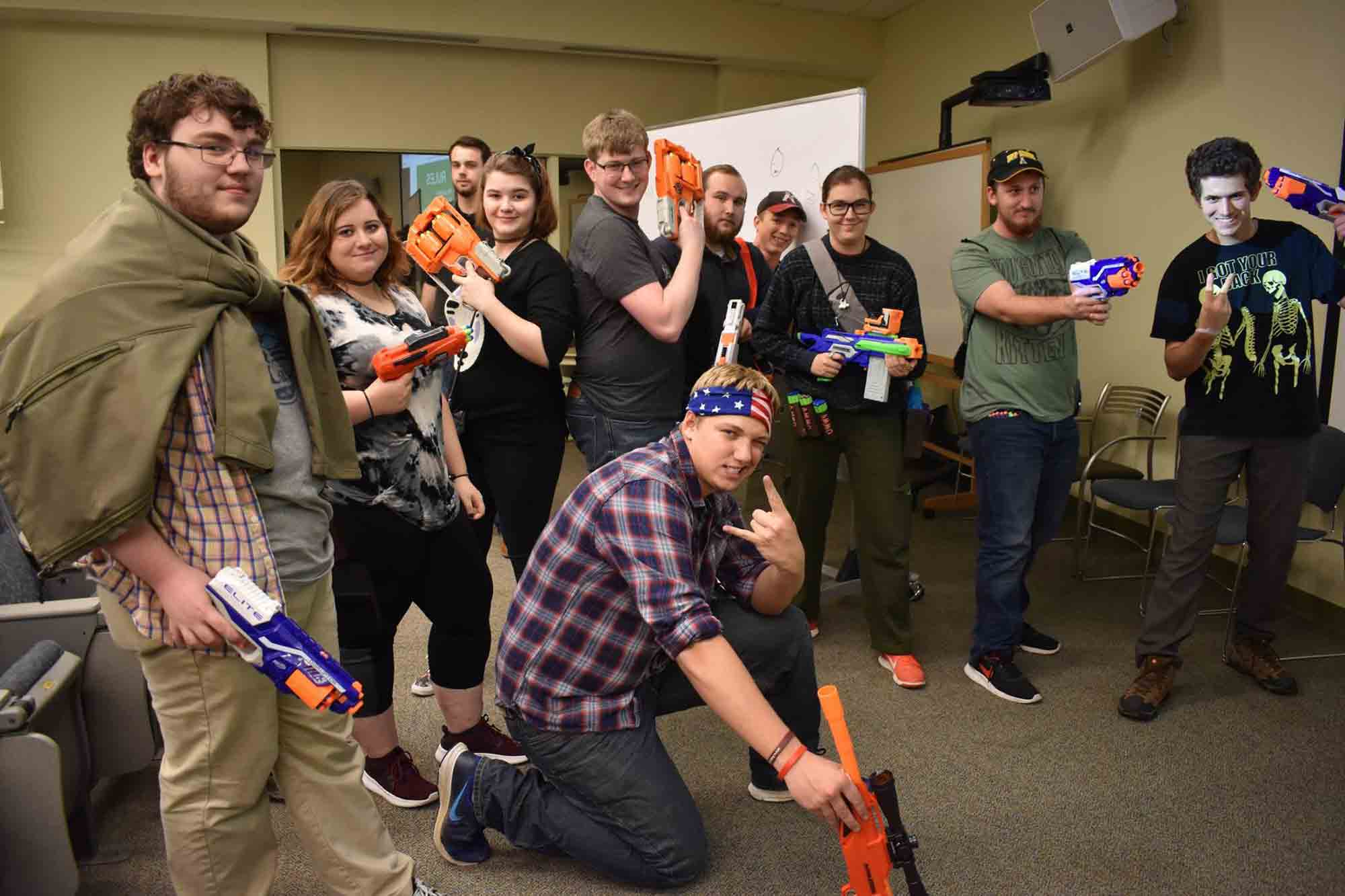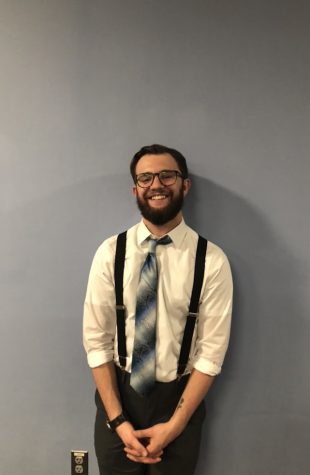Bright orange Nerf bullets whistled through the air, ricocheting off walls and obstacles, as the human team dispersed into the eerily vacant library. Small numbers of survivors clumped together to gain some sense of comfort in the narrow passages of Belk Library.
With the exception of the fourth floor and other small areas, Belk Library was open to both humans and zombies on Oct. 26 for the Halloween inspired Humans vs. Zombies Nerf Battle. Student participants chose to either join the human or zombie team at the start of the game.
The goal for the human team was to survive as long as possible. The goal for the zombie team was to tag, thus infecting, as many humans as they could.
As students arrived at the library, volunteer staff members guided them to lecture hall 114 where student participants discussed strategies and tactics while forming alliances to survive the night.
Survivor’s fingers trembled as they lay across plastic triggers. Eyes shot frantically from corner to corner.
Kyle Matheson, App State alumnus and former president of the Nerd Network, was excited to see how the 2018 event differed from the hectic atmosphere of the 2014 event.
“It got wild, people really got into it,” Matheson said.
While the number of participants in the 2018 event is still unclear, the 2014 event attracted approximately 450 participants.
The rules of the game were explained to participants prior to the event to ensure participants had a clear understanding of the game and safety guidelines.
“Of course, the humans are against the zombies,” Scott Rice, coordinator of technology services at Belk Library, who organized the event said. For a human to stop a zombie, they had to shoot it with their Nerf blaster once in the torso or twice in the extremities. Headshots were prohibited and did not count against zombies in any way.
However, the zombies had the ability to respawn after being eliminated by a human. After a short period of time, zombies were released from the respawn zone to hunt for their human adversaries again.

Zombies could infect humans by tagging them with two hands. After they were tagged, humans were directed to the respawn zone to join the zombie team.
Chaos ensued as the human team explored the library and found spots to set up barricades. Many of the humans spent the first hour of the night shouting words of encouragement. However, at the mere sight of one zombie, most humans resorted to panic, spreading in all directions and screaming for help.
Ericka Patillo, associate dean of libraries, was surprised by how seriously some participants took the event.
“I see the strategies and all of the barricades … it’s quite a production,” Patillo said.
A small collection of humans, who called themselves Outpost Gold, enclosed themselves at a far end of the third floor using furniture and desk chairs. One member of the group, Daniel Trimnal, sophomore career and technical education major, was hesitant to interact with approaching groups of survivors.
Each group of survivors had the potential to attract more dangers.
“There are rules to this,” Trimnal said, referring to how the group had managed to survive well into the night.
As the night grew later, the number of zombies grew larger. By 11 p.m. the zombie team had grown from the initial three zombies, to over 100, outnumbering the human team. Zombie participants gave bone-chilling howls and undead shrieks, which echoed between the tall bookshelves and snaking rows of desks on each floor. Desperate shouts and calls for reinforcements often went unanswered as the number of humans diminished.
Many of the participants spoke enthusiastically about the event and hope to see it return in 2019.
“The point is to have fun,” Rice said. “Kids have a bit of anxiety about the library and so we get them in here and get them comfortable with the place and maybe they’ll come back.”
Towards the end of the night, Patillo was pleased with how the event turned out.
“I think it’s fun! And if we do it again … I’m gonna be playing,” Patillo said. “We want to have the kinds of activities that our users want.”
Story by Tucker Wulff
Photos courtesy of Appalachian Nerd Network
Featured photo caption: Paricipants gear up as they prepare for the Humans vs. Zombies battle in the Belk Library and Information Commons.


